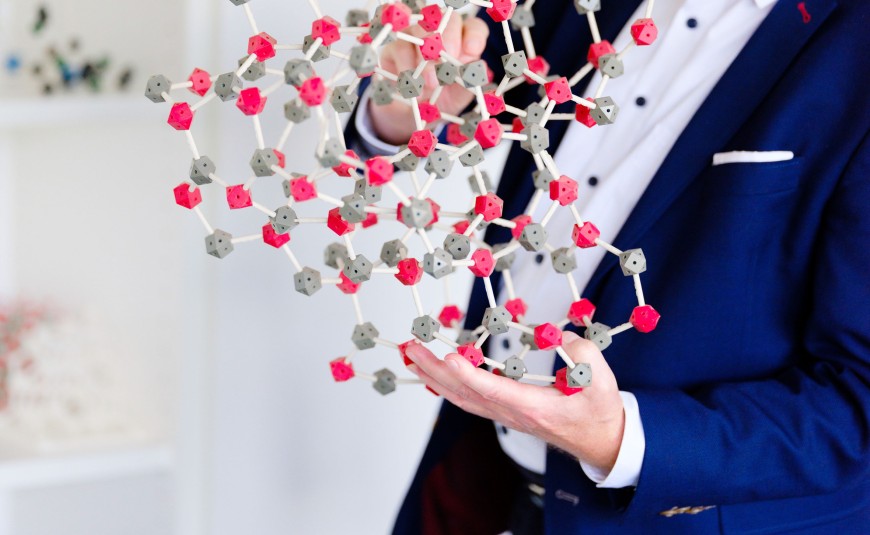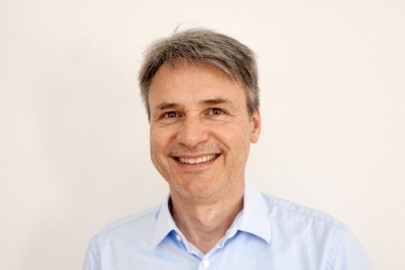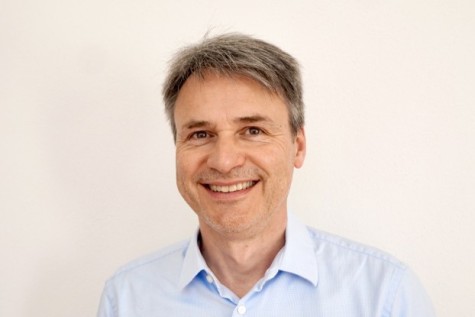New Master's degree programme in Business Administration and Engineering: Materials Science
Start in winter semester 2025/26 / Online application possible until 15 July
2025/06/04
The energy transition brings with it a multitude of complex tasks. For example, new and sustainable materials are needed, but at the same time specialised professionals who can survive in a globalised working environment. TU Darmstadt is facing up to this challenge and is expanding its portfolio of Master's degree programmes in Business Administration and Engineering to include the Technical Specialisation of Materials Science. The Vice Chairperson of Academic Affairs of the department of Law and Economics, Professor Volker Nitsch, explains the special features and opportunities of the new programme.

Why an M.Sc. Business Administration and Engineering: Materials Science? Who is the new degree programme aimed at?
Professor Volker Nitsch: The new English-language Master's degree programme in Business Administration and Engineering: Materials Science is a response to two current megatrends: on the one hand, the energy transition, which is also a materials transition and requires specialists in sustainable materials, functional and structural materials and energy materials. On the other hand, globalisation, which is also making the working environment of industrial engineers increasingly international.
The new degree programme combines the proven concept of Darmstadt's Business Administration and Engineering degree programme, which is in demand on the job market, with a specialisation in Materials Science and an international focus. Graduates of the Bachelor's degree programme in Business Administration and Engineering – Technical Specialisation in Materials Science, which was introduced in the winter semester 2022/23, can seamlessly build on their first degree with the research-oriented Master's programme. The admission requirement for the new Master's degree programme is a Bachelor's degree in this reference degree programme at TU Darmstadt or a degree in another degree programme that provides comparable entry-level skills amounting to at least 180 CP.
How does the new Master's programme complement the existing M.Sc. Business Administration and Engineering programmes at the department?
The integrative concept of the existing Master's degree programmes in Business Administration and Engineering forms the basis of the new degree programme. Economics content is combined with various technical specialisations. Students benefit equally from an interdisciplinary profile and extensive opportunities for individual specialisation. The new Master's degree course in Business Administration and Engineering: Materials Science opens up a further branch of specialisation that is highly responsive to issues relating to the energy transition and the sustainable use of resources.
While the existing Master's degree programmes in Business Administration and Engineering are offered in German, the new English-language programme for the Technical Specialisation of Materials Science also has a more international focus that reflects current developments in the profession.
What can students expect?
Students on the new Master's degree programme benefit from the strengths of two departments, as their interdisciplinary education forms a bridge between economics and engineering. As part of their technical specialisation, they deal with the Material Sciences requirements of the energy transition and digital transformation and become experts in the development and strategic use of new and sustainable materials.
Are there comparable degree programmes in Germany?
There are only a few related degree programmes in Germany, and the programme is unique in the region. The technical scope of Darmstadt's Business Administration and Engineering degree programme combined with the specific focus on Materials Science gives the new Master's degree programme in Business Administration and Engineering: Materials Science a unique selling point in the German study landscape.
In which areas can graduates work later? What job opportunities will they have?
The breadth of their training gives graduates a high degree of adaptability to a dynamic professional environment, combined with sound expertise in their technical specialism. This makes them highly sought after on the labour market. Graduates can work in industry or administration, for example in the fields of smart materials, renewable energies, energy storage, resource management or material cycles, where they work in an advisory capacity or in interface and management functions. The focus of the English-language Master's opens up job opportunities in international companies and organisations in particular.
Due to the breadth of their education, graduates can also pursue a doctorate in engineering, natural sciences or political and social sciences.
Master's degree programme in Business Administration and Engineering: Materials Science (taught in English)
From the winter semester 2025/26, the department of Law and Economics is expanding its portfolio of Master's degree programmes in Business Administration and Engineering to include the Technical Specialisation of Materials Science. The specialist focus is on the strategic development and use of materials to meet the challenges of the energy transition and digital transformation. Graduates are in high demand on the job market due to their broad, interdisciplinary education and simultaneous specialisation. The international orientation of the English-language degree programme opens up positions in globally active institutions, both in business and academia.
cst/pb


